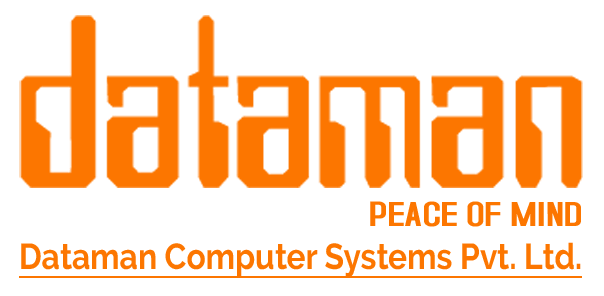- +91 9511117684
- shweta@dataman.in
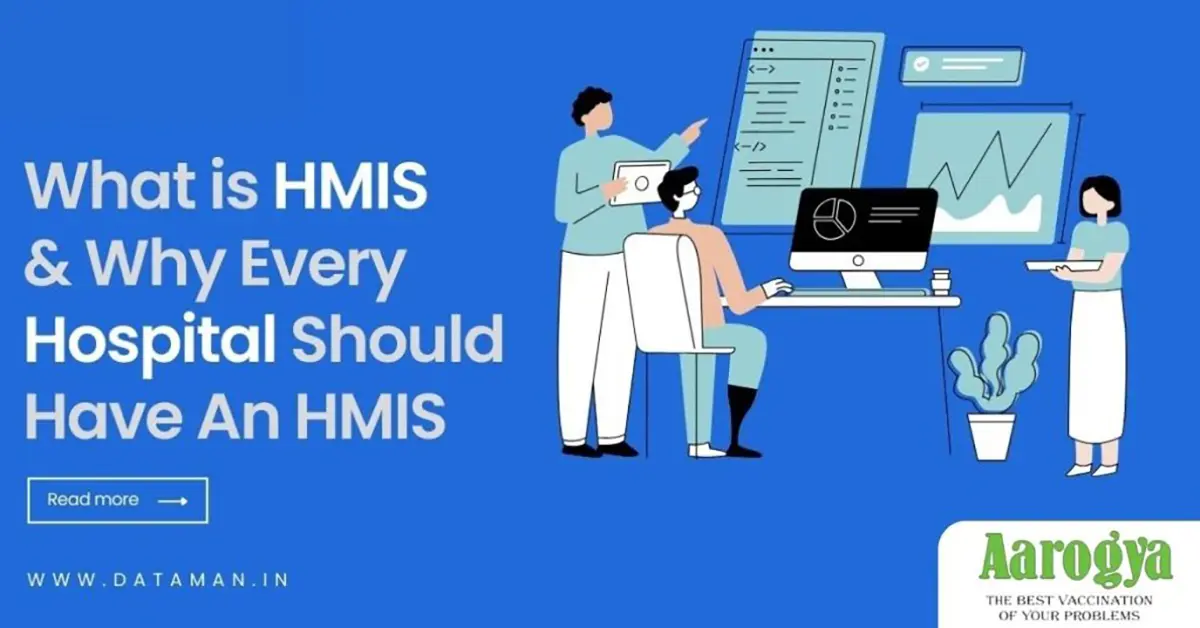
Table of Contents
Post Views: 16,695
Exponential technological advancements have changed the way we work, live and interact, especially in the healthcare industry over the past 15 to 20 years. We have entered into a new era of how hospitals manage information, streamline operations and increase profitability. Hospitals and medical practitioners are relying on HMIS software to help them efficiently manage business aspects and day-to-day operations. In this article, we will discuss what is HMIS, the importance of HMIS, functions and uses of HMIS in detail.
HMIS Full Form | Difference between HMIS and HIMS
The terms “HMIS” and “HIMS” are widely used in the healthtech industry. They are often used interchangeably and are almost similar to one another. HMIS stands for “Hospital Management Information System”. On the other hand, HIMS stands for “Hospital Information Management Software”. These systems manage the accurate records of patients history, their treatments, reports, appointments and much more. Basically, these softwares are a hub of information and data for a hospital which can be used to digitise the operations at a hospital.
What is HMIS in Healthcare
Hospital Management Information System (HMIS) is a comprehensive software solution designed to empower hospitals and healthcare institutions to efficiently manage all aspects of a hospital’s operations. It helps digitising the different operations including medical, administrative, finance, legal, etc.
Introduced in 1960, HMIS software has significantly evolved over the years to improve the patient care while minimising the operating cost and maximising the revenue.
Importance of Hospital Management Information System (HMIS)
As per the Journal of Medical System HMIS systems help reduce medication administration errors by 50% to 80%. HMIS systems have made significant contributions in the development of healthcare infrastructure. These systems optimise the complex and confidential management of paperwork across all of the departments of the hospital.
HMIS helps the healthcare institutions and hospitals to track the level of patient satisfaction score, their readmission rates, and how often they are being infected. This crucial data is very useful to identify current pain points in a hospital and help it identify emergencies efficiently.
Hospital management information system (HMIS)-
- Manages the entire operations of the hospital and improves efficiency.
- Ensures smooth flow of information within departments.
- Improves quality of services and effectiveness.
- Automates processes thus reducing manpower.
- Easier health data assessments improve patient care and satisfaction
Benefits of HMIS Software
We have listed a few key benefits of having a HMIS in a healthcare institution :
A Single Hub for Patient Information
An average of 5 papers/records are created in a hospital for each Out-Patient/ In-Patient visit. From the admission of a patient to its discharge, there’s a lot of paperwork involved in the process of the treatment. One of the major problems is to keep this data organised at one place for future use and derive useful insights. Integration of HMIS in any healthcare institution works as a single hub for patient information. It enables medical representatives to access patients’ entire history instantly with just a few clicks.
Security and Compliance of Data
Data generated at a hospital is of utmost importance to the patients. The data not only should be organised but also, should be super secure as it contains vitals, details and insights of an individual’s day to day curriculum. As per the reports published by Economic Times, 60% of healthcare organisations have witnessed a cyber attack and have been affected by it. A robust HMIS software system keeps the data and information secure from any kind of unauthorised access from hackers, spammers and other potential threats.
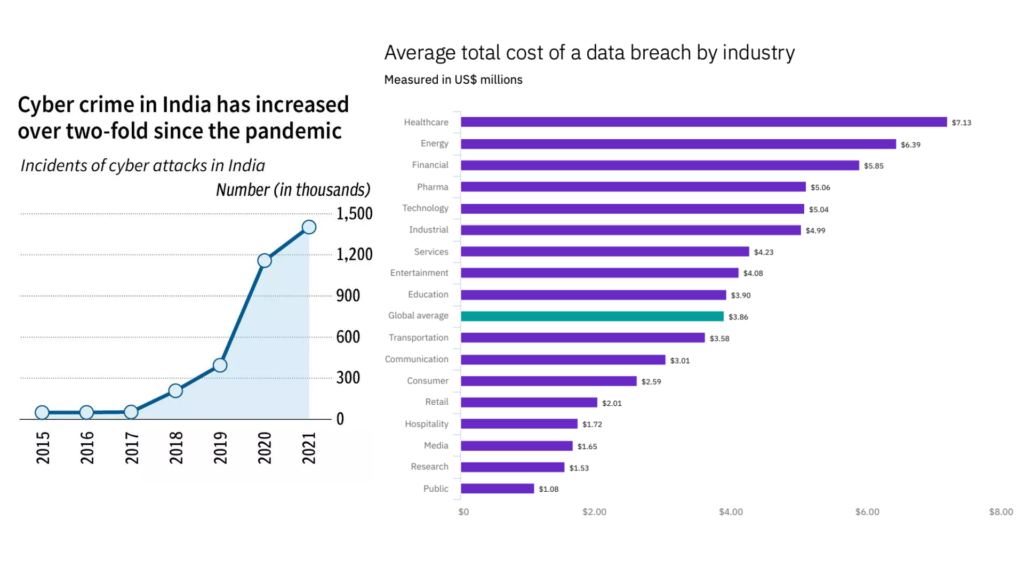
AS PER DATA PUBLISHED BY IBM DATA BREACH REPORT 2020
Resource Management Done Right
Resource management is a crucial part of any hospital or institution as it affects the efficiency and productivity of the organisation. Whether it is inventory control, minimising wastes, averting shortages, or appointing duties, HMIS system manages all resources efficiently. Improved resource management guarantees the growth of the organisation.
According to the National Library of Medicine, an HIMS system improves the performance of the staff by 64.42% and this can go up to 81.85% in the case of an HMIS developed with proper strategy.
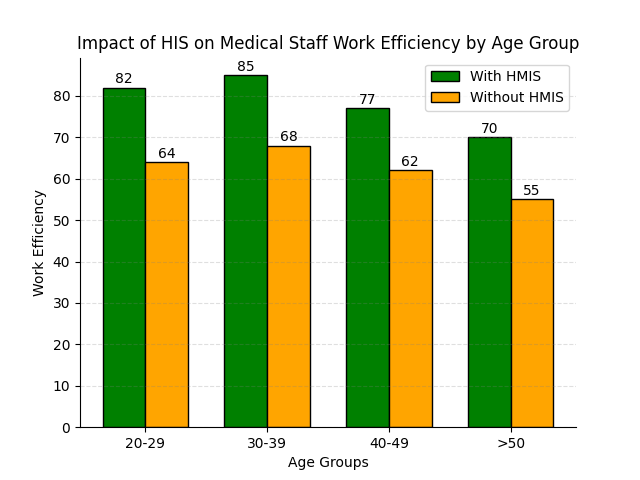
IMPACT OF HIS ON MEDICAL STAFF WORK EFFICIENCY BY AGE GROUP
Information Based on Data
The data gathered from patients, doctors, pharmacists, and visitors is of utmost importance. It serves as the foundation for making well-informed decisions, recognizing trends, understanding patient behaviours, and determining the necessary steps for enhancing the quality of healthcare services
Empowering Patients
The system is beneficial not only for the hospitals but also for the patients. The patient portal enables them to login, book appointments, consult doctors online, check and download their reports, prescriptions etc. So, patients are more engaged and directly in touch with the doctors thus enabling a better patient experience.
The National Library of Medicine study shows that among 5641 patients those who used the online booking service were more satisfied(by 21%) and had shorter waiting times than those who used the usual queuing method.
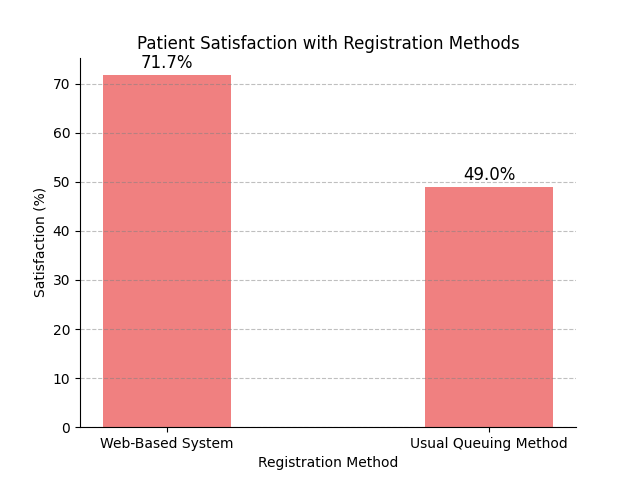
PATIENT SATISFACTION WITH REGISTRATION METHODS
Integration of Telehealth
A major increase came in the telehealth services during the COVID-19 pandemic and it became a new normal after that. An HMIS solution provides the facility of telehealth services to interact and consult patients online via video conferencing. It is a boon for the patients who are located in the remote areas and could not come to hospitals.
An insight on report by McKinsey & Company shows the growth in telemedicine usage peaked during 2020 (because of onset of COVID) and was still 38x higher in 2021 post COVID.
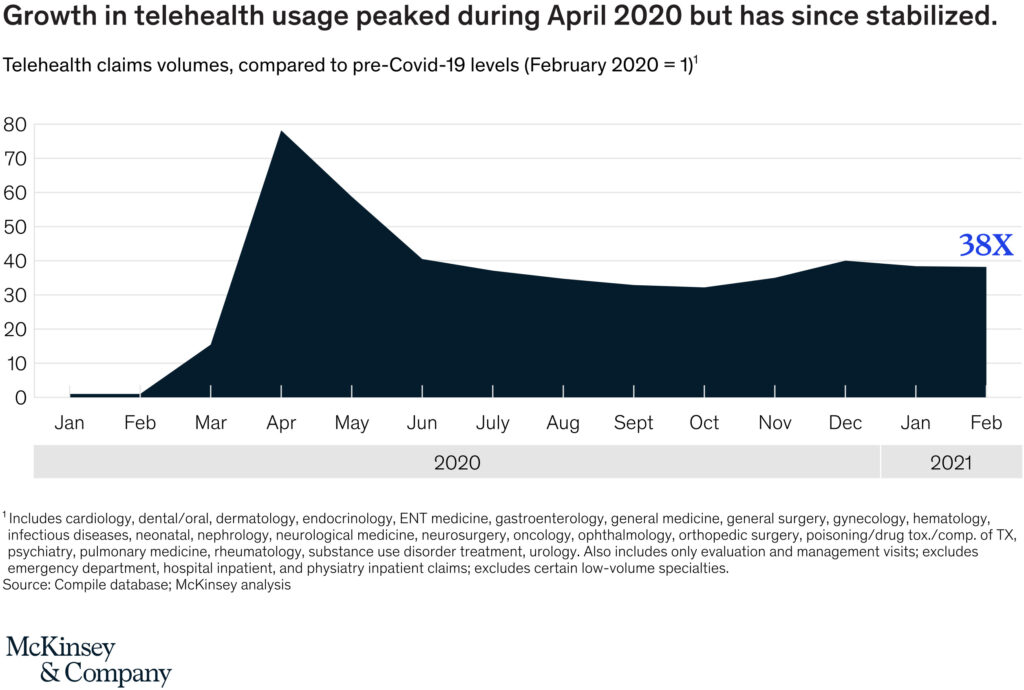
MCKINSEY & COMPANY SHOWS THE GROWTH IN TELEHEALTH USAGE PEAKED DURING APRIL 2020 BUT HAS SINCE STABILIZED
Cost Savings
The amount of time saved by a good HMIS for hospital staff and patients helps in generating additional revenue for the hospitals. It reduces the unnecessary to and fro of resources and overall cuts down the cost incurred to the hospital administration by 80%. The challenges are mainly in the implementation of the software around the hospital and getting the staff accustomed with the modern methods. But the ROI is much greater than the implementation cost.
What are the Functions of an HMIS Software?
An HMIS system can be a complex software solution. Thus, for ease of implementation and to fulfil the specific requirements of clients, it is divided into different modules. Following is a list of modules used frequently by hospitals:
- Patient Registration
- Appointment scheduling
- Daycare/Emergency
- OPD Management
- IPD Management
- OT Management
- TPA Management
- Sterilisation Management
- Pathology Software
- Pharmacy Software
- LIS : Laboratory Information System
- RIS : Radiology Information System
- Inventory Management
- Payroll Management
- Finance and Accounting
- H.M.I.S. Reports
- Blood Bank Management
- Radiology Software
How HMIS helps Hospitals Deal with Patients
Quick & Accurate Patient Registration:
A HMIS solution enables hospitals to quickly register patients and collect accurate information, such as address, contact details, and insurance information.
Electronic Health Record Management:
HMIS manages and keeps the electronic health records (EHRs) of the patients. The patient can check and download their information such as medical history, test results, and treatment plans as and when they are required. With these records, the doctors can assess the patients and diagnose them in an efficient manner.
Reduced Waiting Time:
Patients and doctors can easily coordinate and schedule appointments as per their convenience. The slots get reserved and patients can avail a real time notification about their estimated waiting time before diagnosis.
Telemedicine & Remote Consultation:
Patients can avail the facility of telemedicine and remote consultation if they cannot meet 1:1 with the doctors. This saves a lot of time for doctors as well as for the patients.
How HMIS helps Hospitals Manage its Operations
Inventory Management :
The inventory of a hospital generally comprises medical tools, medicines, hospital room inventories and other devices. These devices and equipment need proper sterilisation and servicing. HMIS takes care of the service reminders and allows the hospital to never run out of equipment while working for its patients. It intimidates the management staff or the pharmacy managers about the slightest of alerts and ensures that the medicines have not reached their expiry.
Employee Payroll :
HMIS provides a centralised database of employee information that helps hospitals manage staff schedules, attendance, salary, benefits distributions, leave and work hours efficiently.
Performance Evaluations:
HMIS facilitates performance evaluations facility and tracking of key performance indicators (KPIs) for staff members. Down the line, these performance metrics indicate hospitals where they can improve in future and what all areas need immediate attention.
On-call Staff Management:
It enables hospitals to manage on-call staff in case of any emergencies. It keeps a track of the TAT (Turn Around Time) for any operation/task and gives hospitals a deeper insight into the daily activity.
Example of HMIS
Developed by Dataman Computer Systems, Aarogya is one of the most popular HMIS software in India known for its top-notch features and integration capabilities that allow healthcare facilities to seamlessly share data. It offers features for patient records, billing, scheduling, payroll, inventory, pharmacy, radiology, blood bank and more.
The software comes with on-cloud hosting services. The on-cloud solution is recommended for hospitals with 100+ beds.
Talk to our Expert
Wrapping Up
Every hospital has different needs and requirements, so it is very crucial to identify pain areas and search for a robust HMIS software solution matching your specific requirements. Given the benefits and features, a hospital management system is the best digital tool to speed up your work, maximise your hospital’s output, utilise your resources and expedite growth
0
